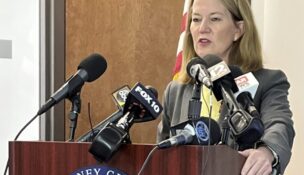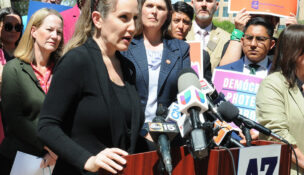For lobbyists, week before session can be
Arizona Capitol Reports Staff//January 23, 2009//[read_meter]
For lobbyists, week before session can be
Arizona Capitol Reports Staff//January 23, 2009//[read_meter]
Some lobbyists call it “hell week” or, more fondly, “the giving week.” The brief period after the holidays and before state lawmakers go back to work — already busy with...
No tags for this post.



















